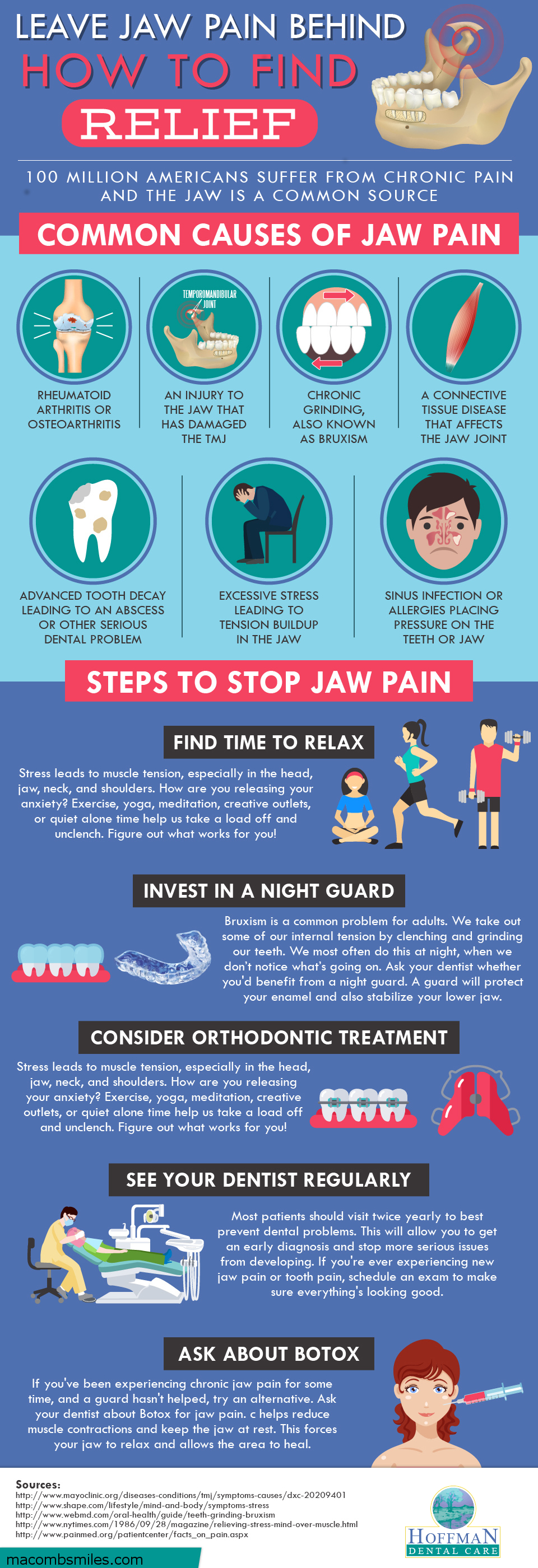What’s The Best Way to Floss
We all know we should floss, but it can be tough. Part of this is because flossing can feel like an extra task in an already busy day, but it...
Your jaw is actually a complicated piece of biological machinery. The components within work in harmony to allow you to bite, chew, and speak with ease. But sometimes one component can throw the others off, like when your jaw muscles clench and cause your teeth to grind. However, this is just one source of jaw pain – there are many other reasons your jaw may be feeling tender. Cavities can actually lead to an uncomfortable jaw joint as well. But how can you tell what the real source of the pain is?
There are a few symptoms that can point you to the true cause of your discomfort. Check out our infographic below to learn more about the common causes, with more details specific to cavities below the graphic. If you’ve been trying to regain comfort but feeling helpless, get in touch with our staff. We’ll help you find the solution that works for your jaw pain, and brings relief.

Tooth decay begins at the outermost layer of the tooth, the enamel. If a cavity is treated early, it stops and does not progress. But if the cavity isn’t filled, decay can spread to inner layers of the tooth. Bacteria from the cavity spreads to the root of the tooth, where it can affect the surrounding bone. If this occurs, significant jaw pain can take hold, especially if the abscessed tooth is at the back of the mouth.
The best way to prevent this from occurring is scheduling regular dental exams. It can be tough to notice cavities when they’re still small on your own – there may not be pain and they may be hidden between or behind teeth. But your dentist will be able to find decay right away, and treat it before the situation worsens. Schedule your next exam today to stay on top of your teeth!